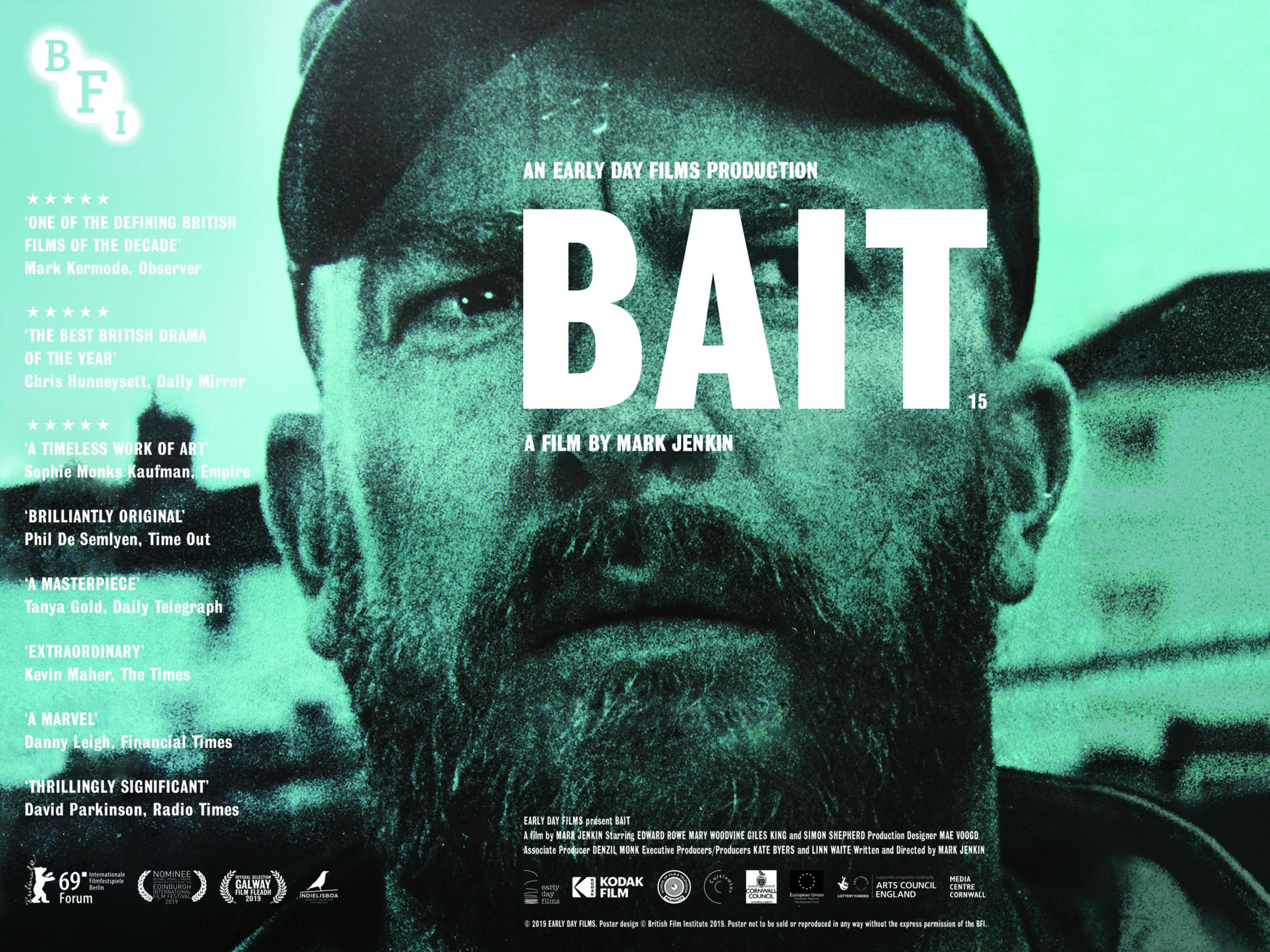The film that shows where the movie industry is going wrong
It’s a unique and beautiful piece of movie-making but can’t crack the multiplexes, writes James Moore


Bait is a Cornish film that has hooked critics and cinemagoers wherever it has been shown. The black and white feature tells the story of a Cornish fishing village and the tensions between residents and incomers, younger and older generations, that simmer within it. It’s both poignant and relevant. It also, however, has something to say about the film industry.
Director Mark Jenkin used clockwork cameras and 16mm film to shoot it. The sound effects and the actors’ voices were added afterwards, giving it the look of a foreign language film dubbed into English.
Perhaps it’s this very uniqueness, in an era of CGI-heavy blockbusters, that put off the major chains. They were all invited to attend screenings by the British Film Institute, which is serving as the film’s distributor. They just didn’t bite.
The BFI is nonetheless delighted with its performance and the buzz it has generated. Bait has managed to sell out cinemas where it has been shown, driven by word of mouth and social media. The backing of high-profile critics such as Mark Kermode hasn’t hurt.
But even though it has become something of a sleeper success, it managed just 47 screens by its third week, having expanded from 24 in its opening week. Excluding pop-ups, Britain’s 775 cinemas boast a total of 4,340. So that’s a little over 1 per cent.
Of course, a film like this is never going to have the appeal of a big-budget spectacular. It’s a small and intimate tale, although towards the end the tension is cranked up to thriller-like levels.
But it isn’t a difficult one. Notwithstanding its unusual look and feel, this isn’t one of those art-house movies people think they have to sing the praises of while privately wondering what they were watching and wishing they’d been to see the Avengers instead.

Multiplexes are there to make money, so of course they will show what they think people want to watch. But Bait’s results on the screens it has graced, and the (justified) acclaim it has garnered from those lucky enough to see it, suggest those responsible for what gets into cinemas may be guilty of missing a trick.
This brings us to the heated debate that took place over another small, intimate, black and white film, this one with subtitles to boot. Roma was also seen on only a limited number of screens. It nonetheless got a very wide audience thanks to its ownership by Netflix.
The streaming giant’s dollars, an A-list director in the form of Alfonso Cuaron, and the same sort of rapturous critical reception Bait has achieved helped the film to 10 Oscar nominations and three wins. It was criminally cheated of the Best Film gong by Green Book.
Part of the reason might have been the controversy it generated within the industry. Netflix refused cinema chains their cherished 90-day window of exclusivity, so it was shunned with just a small number of exceptions.
This irked a number of powerful film industry figures, including no less than Steven Spielberg, who said he felt it should have been classified as a “made for TV movie” and made ineligible for the awards.
The flip side is that Netflix did at least ensure Roma got seen by those without easy access to an art house or independent theatre willing to give it a run.
It’s true that competition for cinema space is fierce. There were 503 releases in 2008 but 787 in 2018. It’s also true that Britain’s big chains will sometimes take a shot on smaller films when there’s a gap between Disney/Marvel releases or big-name movies from the box office kingpin’s rivals.
My local showcase, for example, screened Dirty God, another small film produced in Britain, which tells the story of the survivor of an acid attack.
But there’s been no Bait to hook its customers. At least not yet. And that’s a shame.
Its absence from multiplexes serves to strengthen the hand of those who argue that Netflix is democratising cinema by helping to get films seen that might otherwise get lost.
In the meantime, the BFI is planning to offer up Bait via its own streaming service. For now, its website offers a list of cinemas where the film is showing.
If you like interesting and original movies, hell, if you just like movies, it would be worth your perusing it. The more money this film makes, the wider the audience it will get. And an audience is what it deserves.
Join our commenting forum
Join thought-provoking conversations, follow other Independent readers and see their replies
Comments